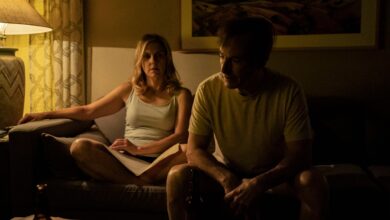Shōgun Series Preview: Three Hearts of The Japanese People The Samurai Game of Thrones
Stars: Anna Sawai, Hiroyuki Sanada, Cosmo Jarvis
Director: Jonathan van Tulleken
Streaming Platform: FX Network Disney+
Filmyhype.com Ratings: 4/5 (four stars)
Shōgun series is all set to release on FX Networks and FX and Disney+ from 27th February 2023. Thanks to FX Network we had the opportunity to preview the new, highly anticipated FX series set in feudal Japan. Is there still room in the era of platforms, especially after a whole series of very expensive but soulless productions with meager results, for a show that can be truly epic? Yes, the answer is Shōgun, an FX miniseries in ten episodes, coming to us on FX and Disney+ on the 27th of this month. We previewed the first eight episodes, and we liked them. Despite some limitations, mostly due to the space given to this or that character, Shōgun works very well as a political thriller set in early seventeenth-century Japan. Another game of thrones, between warring lords, the first Europeans (also at war), the influence of Christianity, love and death. A lot. Here are our impressions: as per the title, without spoilers, don’t worry.
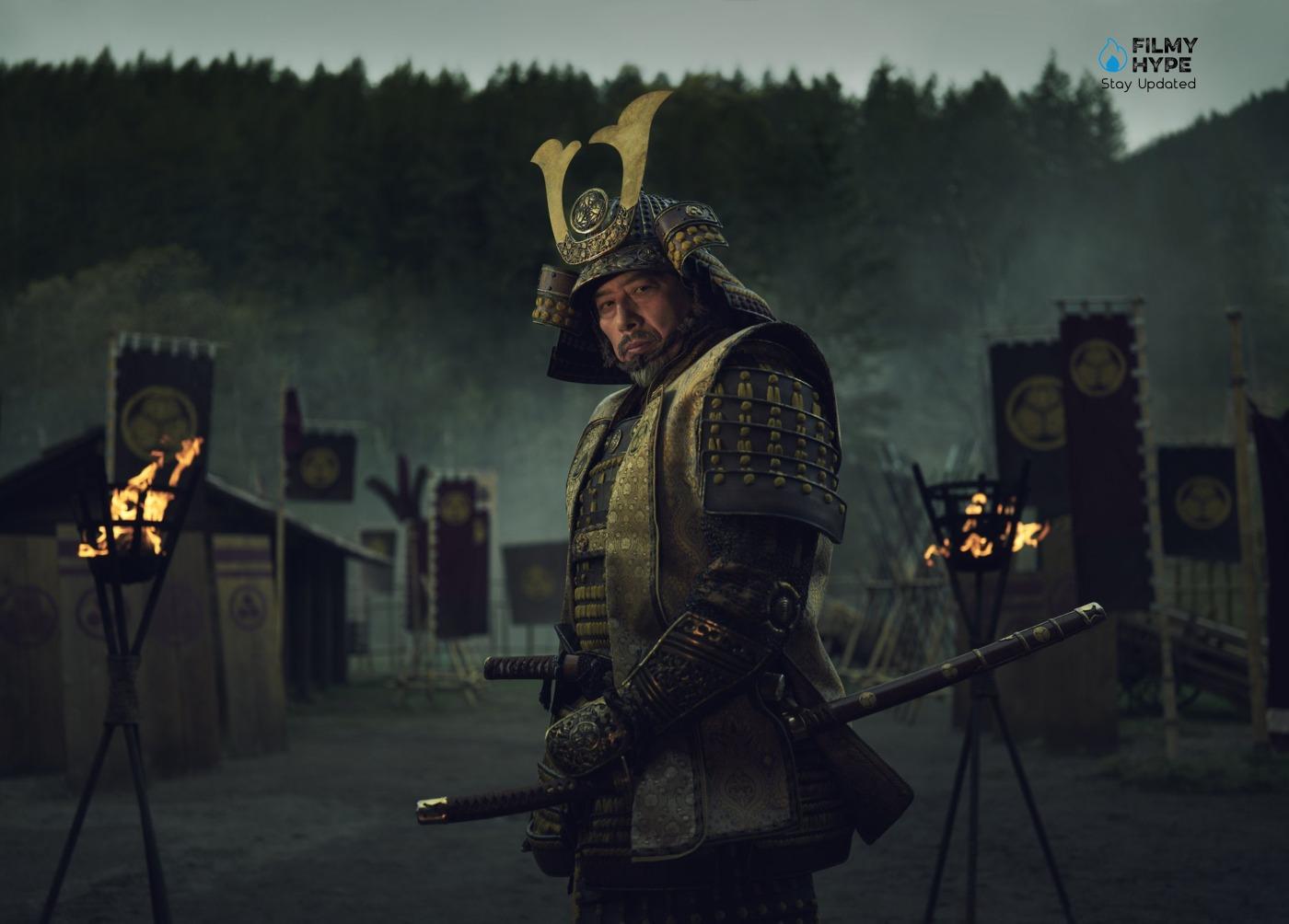
After the success of TV series of the caliber of WandaVision, Loki, and the second season of Loki, the FX and Disney+ streaming platform tries again. It seems ready to ride the crimson skies of the Rising Sun with an innovative series, which transcends linguistic, cultural, and temporal boundaries. Despite the initial hesitation about the possibility of compressing the 1004 pages of the original work into just 10 episodes, the initial sequences of the opening episode were enough to make us think again: the director Justin Marks seems to have succeeded very well in his aim, satisfying not only James Clavell fans but also the rest of the viewers who were unfamiliar with the 1975 novel, Shōgun, although it was necessary to insert some poetic license and a series of cut-and-paste here and there for obvious plot needs.
Shōgun Series Preview: The Story Plot
Japan, 1600, about half a century after the arrival of the first Europeans, the Portuguese, in Japan. An English sailor, John Blackthorne – the Cosmo Jarvis seen in Peaky Blinders and Raised by Wolves. With very blue contact lenses to make him more exotic – he unintentionally finds himself at the center of the power struggle between one of the country’s lords, Yoshii Toranaga (Hiroyuki Sanada), and the rest of the Council of Regents, who have ganged up against him. Also involved in the story are the affairs of the Portuguese, managed by the Jesuits, a noblewoman who converted to Christianity and was called to act as an interpreter with Blackthorne, Mariko (Anna Sawai), and various other characters.
If the story reminds you of something, it’s because it is the second television adaptation of Shōgun, the famous 1975 novel by James Clavell, which in the following years became a board game, a series of video games, and above all a TV miniseries of the same name in 1980, with Richard Chamberlain as Blackthorne and Toshiro Mifune as Toranaga. Clavell’s story adapts some real historical figures, in the aftermath of the battle of Sekigahara: the daimyō Toranaga is for example based on Tokugawa Ieyasu and John Blackthorne on the English navigator William Adams, the first subject of His Majesty to land in the Japanese archipelago. And he does it by placing those characters in a compelling web of relationships, interests, and ambitions.
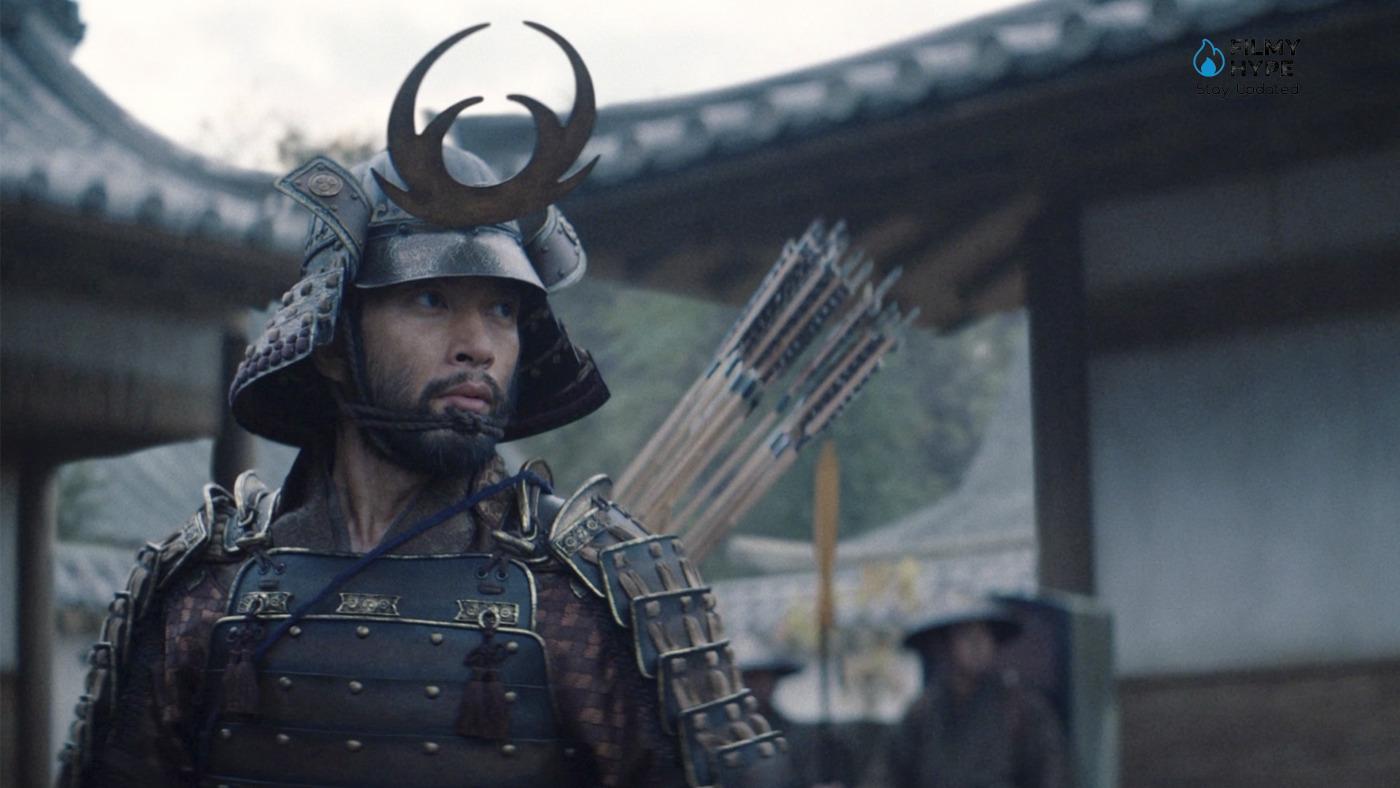
The Taiko, absolute lord of Japan and keeper of peace, recently died, leaving his beloved country in the hands of a Council specially chosen by him, made up of five Regents, waiting for his only heir reaches the designated age to continue to reign over the country of the Rising Sun. In Osaka Castle, surrounded by their loyal samurai, we find the daimyo Ishido Kazunari (Takehiro Hira), Yoshi Toranaga (Hiroyuki Sanada), and the three Catholic regents: Ohno, a powerful warrior with a disfigured face; Sugiyama, Japan’s richest man; Kiyama, whose faith is dictated only by greed. The Council accuses Toranaga, the Taiko favorite, of working only for his gain, but the Lord of Edo Castle denies his companions’ arrogant accusations.
A young samurai intervenes to defend the honor of his daimyo, and the viewer is immediately given a taste of what the TV series has in store for him: the soldier, immediately realizing that he has dishonored his lord by sinning insolence, kneels before Toranaga asking him to do seppuku. And that’s exactly what happens: the lives of the young man and his newborn son (the latter simply to ensure he puts an end to his dishonorable lineage) are taken for a futile and trivial reason since honor is the only thing that matters to a samurai.
The heartbreaking scene of Fuji (Moeka Hoshi) asking for seppuku, screaming to reach her newborn baby and her husband, will move even the stiffest hearts. She, the granddaughter of Toda Hiromatsu (Toranaga’s most trusted advisor), will not be granted the honor of ending her existence. A brutal direction, which favors shots from above, but in constant movement, provides the viewer with an exceptional result: a wider, more open, clearer view. The director was able to perfectly calibrate the narrative breaks, without ever making the staging seem hasty or rough, balancing moments of suspense, action, and emotion, managing to completely capture the viewer’s attention: you will forget that you are not there next to Hiromatsu, kneeling next to Toranaga-Sama, spectators of his private fight against the evil Ishido.
Meanwhile, on the horizon of the small village of Ajiro (Izu, Honshu island) the Erasmus appears, the last survivor of a company of Dutch merchant vessels. On board, the English pilot John Blackthorne (Cosmo Jarvis) tries to save what remains of his companions, while a storm that seems to have been created by the Kami of the sea himself rages and destroys everything that remains. Sky and sea are one, and the pilot just has to let himself be swallowed up by the power of the rain and the roar of the wind. However, Blackthorne’s fate is far from complete. He and the few remaining survivors wake up in the abyss of a well, deprived of light, dirty, smelly, and debilitated: from above Kashigi Omi (Hiroto Kanai), the Lord of Ajiro, and his platoon of samurai try to start a conversation, in a mixture of Japanese, Dutch and English, but the language barrier prevents both groups from understanding each other. Exhausted and enraged, shy towards those who in their eyes appear to be savages, they will end by cursing each other, starting in Japanese and English with a thunderous.
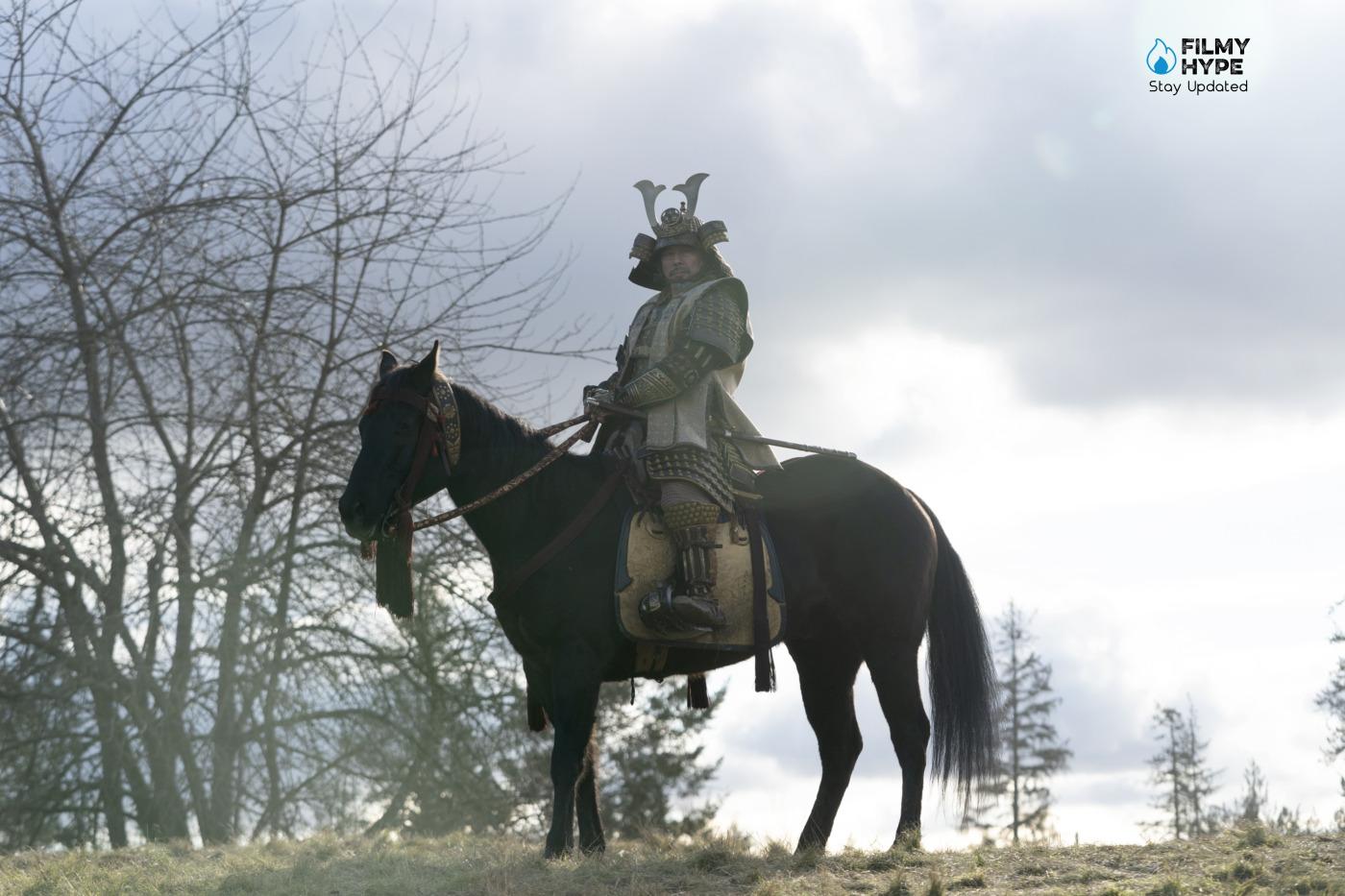
Soon, however, John is picked up, beaten up, and forcibly forced to settle down. Blackthorne, whose surname is too complex for the Japanese to pronounce, is called ” Anjin “, pilot in Japanese, and dragged before one of the key characters of the entire series: Kashigi Yabushige (Tadanobu Asano), daimyo of Izu (and uncle of Omi), strong and cunning samurai, greedy for glory and money. A sadistic, ruthless character with many faces, who immediately understands how English and the weapons of Erasmus can be exploited to his advantage: breaking the barbarian’s soul, bending him to his will, showing him what a true samurai is capable of, will be its primary objectives.
Anyway, soon another ship lands on the coast of Ajiro. Hiromatsu (Tokuma Nishioka) makes his entrance, and Yabushige’s plans fade away, while for Blackthorne the time has come to face a new adventure: he comes across the sagacious Rodrigues (Nestor Carbonel), a rough but skilled Spanish pilot, with whom he establishes a strange collaborative relationship, between insults and jokes. Finally, the Englishman (as Rodrigues nicknames him) sets sail again, this time in the direction of Osaka, to meet the commander in chief of the armies of the East: Yoshi Toranaga. During the journey, however, the ship is caught in a storm, and only a few people will escape safely: Rodrigues will be swallowed up by the turbulent salt waters, but Blackthorne will be able to locate his helpless body at the base of a cliff.
While he is busy devising a plan of action, Yabushige undresses and throws himself down, bringing the Spaniard to safety and earning Blackthorne’s respect. Just as Kashigi Yabu predicted. Blackthorne’s inhuman destiny will intersect with that of other characters, profoundly different individuals, with an uncertain past, intent on hiding behind honeyed words and kind gestures, imprisoned in ancient rituals and murky machinations. Lords of deception, some for one reason, some for another.
Finally arriving in the presence of Toranaga, the anjin will come into contact with its two interpreters: the young Lady Mariko (Anna Sawai), a cold and icy woman of faith, and Tsuji-sama, the Catholic priest Father Alvito (Tommy Bastow), who will faithfully translate Blackthorne’s words, even though he too despises him. While the latter is intent on fighting for his life, the cards on the table will be shuffled again: Ishido, Toranaga’s natural enemy, enters the room and formally declares war on the lord of Edo Castle. From this moment on, the intertwined destinies of the main characters will end up colliding, overlapping each other, in a story that talks about war, blood and mud, honor, devotion, disloyalty, and blind obedience. Blackthorne, Toranaga and Mariko are linked by the same shukumei, Japanese karma.
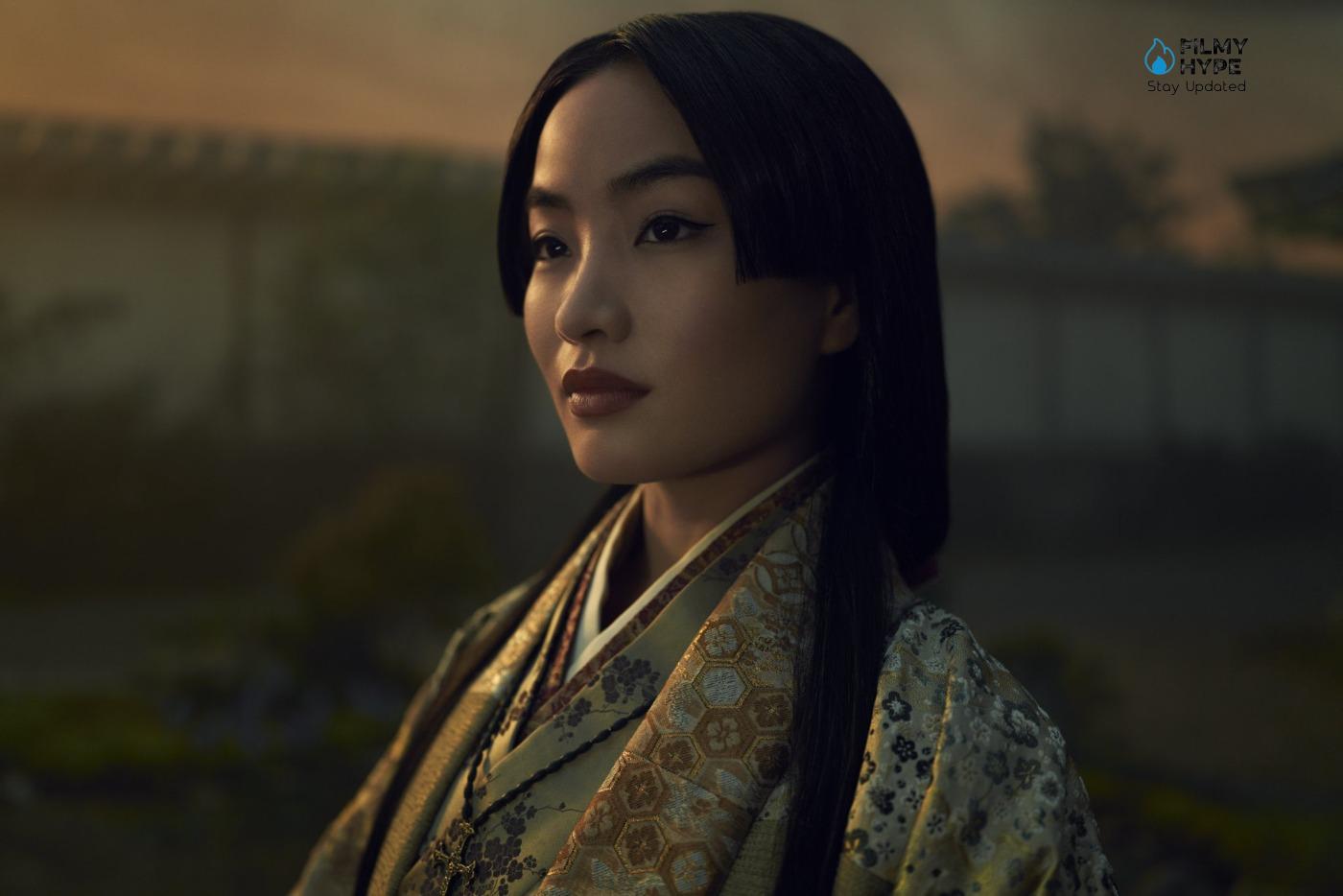
Thus, while in the first episode, Blackthorne seems to be the only real main character, throughout the series the role of the protagonist is often questioned, and the viewer is provided with different points of view, without however resorting to tight narrative devices or aberrant clichés. The flow of the plot is never questioned, the events flow naturally, like the flow of a river. The viewer is invited to observe the world also from the eyes of Mariko, a wounded woman who slowly tries to understand the perspective of Blackthorne, a man who embodies the entire West, whose behavior initially disgusts and embarrasses her. Slowly, Mariko’s perspective changes, evolving into that of Toranaga, then Yabushige, then Ochiiba, and so on.
When the anjin is asked to explain how things really are in the West, he will explain to Toranaga and his vassals how the latter has divided up the territories outside its borders, and consequently how Japan is owned by Catholics and Portuguese. And here is the reason behind the work of evangelization that has been going on for 15 years: Portugal wants to make a clean sweep of the thousand-year-old Japanese culture. The focus on the alarmed and irritated looks of Toranaga, Hiromatsu, Omi and Yabushige, the general’s pitch-colored eyes aimed straight at the pilot’s sea-blue ones, a scene full of tension, accompanied by epic music, in a crescendo of emotions that will culminate in the inevitable, yet frightening: However, Blackthorne still struggles to understand the habits of those distant people, and can’t wait to leave the shores of the Izu fiefdom. Yet, Fate has much more in store for him.
Shōgun Series Preview and Analysis
The atmosphere of the novel is well conveyed by the transposition created for FX/Hulu by the (also real-life) pair of producers Rachel Kondo and Justin Marks. The chain of betrayals and turncoats is intertwined with a truly remarkable historical reconstruction and visible care in crafting the mass scenes, combining extras in costume and CGI. Having said that it is strange to find ourselves, a few weeks after the end of the first season of Monarch: Legacy of Monsters, with two of its protagonists here too, in key roles (the aforementioned New Zealander of Japanese origins Anna Sawai and Takehiro Hira), Shōgun shines precisely in the way he stages and makes his Japanese characters move. A little less so when the spotlight is all on Blackthorne, who would also be the protagonist.
Don’t get me wrong: it’s not the fault of Jarvis, who works hard to give life to a crude and foul-mouthed English navigator who hates the Portuguese and Catholics, convinced that he has ended up in a country of savages, and who instead finds himself forced to understand and appreciate a culture so different from his own. Blackthorne obviously functions as a gateway, also for the viewer, to a different world, but for how the performances of great actors such as Hiroyuki Sanada and Tadanobu Asano stand out (both known in the West for many things, including their appearances in MCU), one would almost like the story to always follow them. Not surprisingly, one of the central episodes, in which Lord Toranaga is not present, is also the weakest of the miniseries. But Sawai is also very good in her role: Mariko is a delicate figure, yet in some moments extremely strong and determined, and the same goes for Fuji (Moeka Hoshi).
That said, if you love series like House of the Dragon and Game of Thrones, it’s easy to get into the Shōgun mood in the blink of an eye. The climate of tension, from the first episode, is constant, there is no shortage of mysteries revealed little by little, and yes, there is also blood (a lot) and sex (a little, but it is there). In short, Shōgun is not one of those high-budget productions for platforms that get lost in the task of aseptic visual packaging, proposing stories with a little bite. Without necessarily calling into question a certain mega show that talks about rings, that is still the most fitting example that comes to mind at the moment. Here the story is, on the contrary, visceral, and the actions often have dramatic, sometimes brutal consequences.
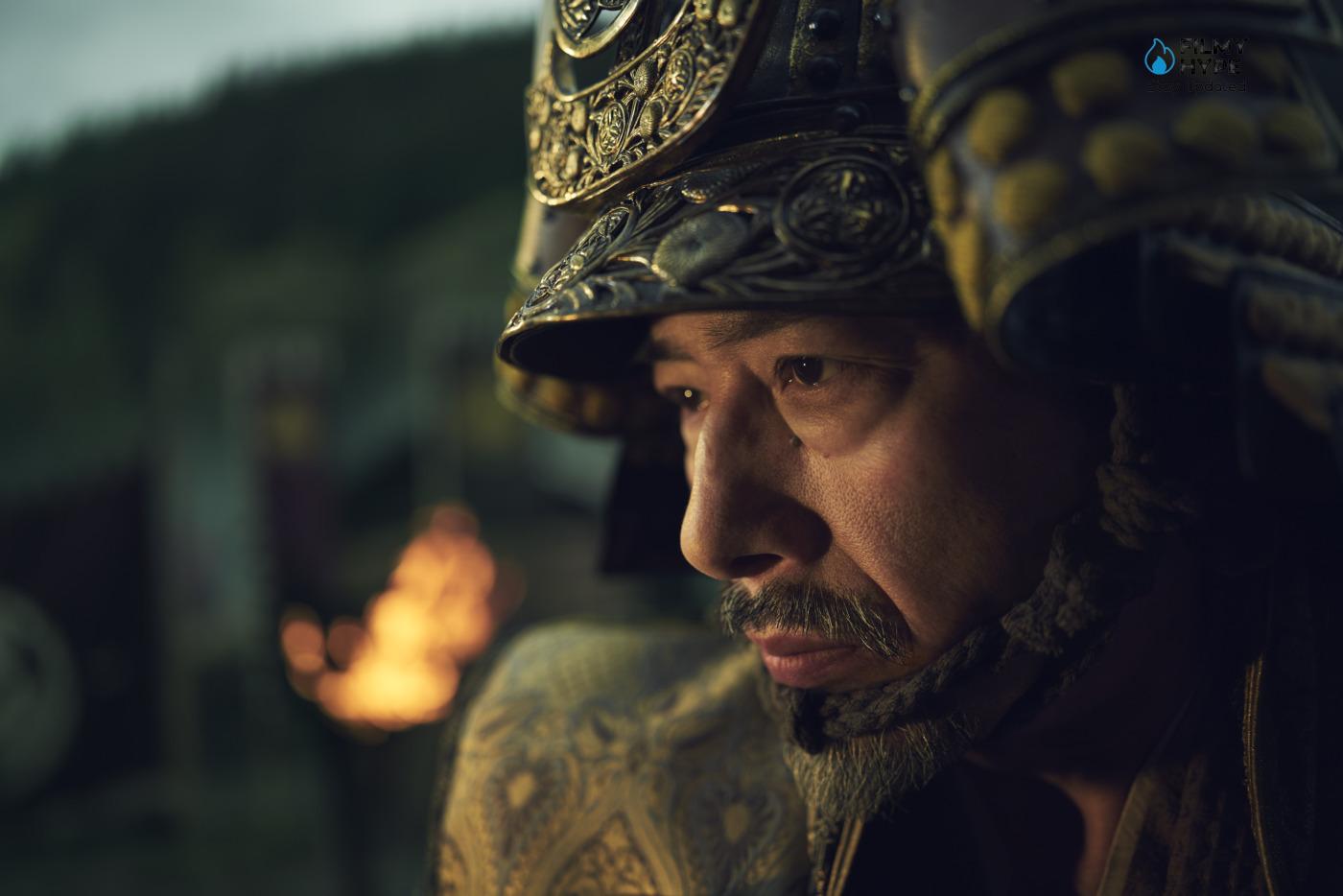
However, if we want to talk about visual packaging, almost everything you see in Shōgun is splendid. That plot and those characters are immersed in an incredibly realistic world: from glimpses of the pulsating life of Osaka at that time to the austerity in the palace, passing through the mud in which a poor man is forced to stay due to the whims of an upstart daimyō, under a rain that makes the cold enter into the viewer’s bones, as if we were among Refn’s Vikings in Valhalla Rising. The main protagonist is the pilot John Blackthorne played by Cosmo Jarvis (Peaky Blinders). The American actor creates the figure of this initially rough-looking pirate, naive but bold, struggling with a difficult situation: dealing with a culture completely different from his own. If England is dirty and noisy, Japan is clean and silent, despite the adversities caused by natural disasters. This entire range of emotions, as well as the surprise at the discovery of some samurai customs (Seppoku in particular), are represented spontaneously and authentically by the actor.
The series also features an icon of Japanese cinema, present in almost all-American productions set in the land of the Rising Sun: Hiroyuki Sanada (John Wick 4, to name one). Authoritative and wise, he is perfect in the role of Commander Toranaga. To conclude, the trio of protagonists, we have the elegant and sensual Anna Sawai in the role of Lady Mariko, a character who, in the next season, will have an even more central role in the plot. Shōgun is one of those ambitious, detailed series. From accurate historical representations to the sound of rain in the background to create ambiance during conversations, the story’s dense web of intrigue will strike you right from the first episodes. Furthermore, if at first glance there seems to be a man at the center of the story, once the mask is removed, we find a tale of courageous and charismatic women. The concept is similar to Game of Thrones, without the fantasy part: we have five contenders for the Shōgun figure, who will become the new general?
Another pillar in Shōgun is the meaning of life, as well as the persistence of death. The very concept of life, for a samurai, has value only if devoted to honor, only as a function of one’s “dignity as a warrior“: a concept that Blackthorne will struggle to understand. The pilot, faced with the execution of a poor man for having performed an ephemeral gesture, cannot help but collapse, disconcerted by the little value that the Japanese people assign to the life of a human being. Despite this, the anjin will be offered an important but painful lesson, namely that words have weight. However, over time it will also become clear to the viewer that this is not always the case: a samurai does not always kill for no reason, and not everyone believes in senseless deaths.
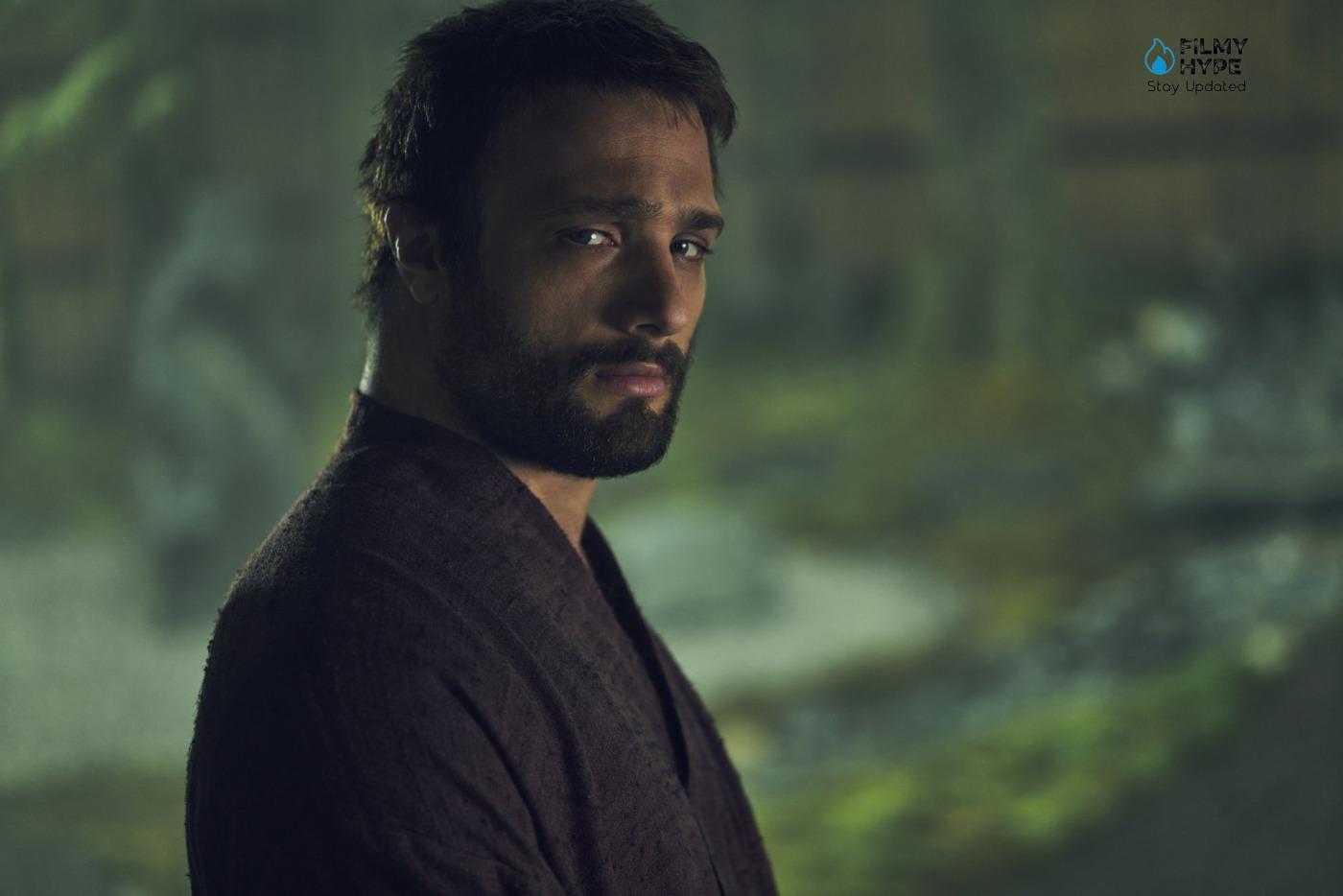
Duplicity is an integral part of Shōgun, a series that does not lay its foundations on the characteristic struggle between good and evil: the protagonists are damaged, and broken, despite pretending to be intact, in a totality made of weaknesses, selfishness, wickedness and benevolence. They perfectly embody the dualism present in all of us, composed of shadow (yin) and light (yang). In each character, there are two (or more) hearts: Mariko is an icy woman, who wishes to die but hides within herself a colorful world of weaknesses and emotions. Toranaga is an honorable, wise warrior, but also the ” Lord of Warlock“, ready to do anything to achieve his goal. Yabushige is a dignified samurai but hides a universe of intrigue and deception, which makes him probably one of the most fascinating characters, who often manages to ease the tension with his sagacious irony.
And finally, John Blackthorne, a rude, wild, “pirate”, but who turns out to be sensitive and defenseless. A man who, in the end, is not reflected in either Western or Eastern habits of the New World: a man with a broken soul, divided between past and future, who has now lost what he believed to be his place in the world, although he is aware of having to forge his destiny. Don’t be fooled by the slew of exceptional characters, because in Shōgun the real protagonist is Shōgun: not the anjin, not Toranaga, but the brutal image of a Japan of the 1600s, with its customs and customs, with its music and theatrical performances, its battles, the shining swords, the armor and the terrifying mempo, the tight rituals, the green plains, the small fishing villages. If you are a lover of the Land of the Sun, if you cannot help but dream of hanami, if you are fascinated by the habits of a delicate, but at the same time merciless and dutiful people, if you accept both the strengths and weaknesses of Japan, then Shōgun is the TV series for you.
Shōgun Series Preview: The Last Words
Shōgun‘s plot is a babel of political intrigue, historical curiosities, bloody wars, and battles that alternate between shining swords, wild cannons, imposing bows, and smoking pistols. A game of contrasts that translates into the internal conflict of the performers involved: men and women of honor, presented with impactful close-ups, who with the power of their gaze alone pierce the screen and penetrate the viewer’s soul, all supported from an at times impeccable direction, an evocative soundtrack, very pleasant acting, impeccable evocative costumes and perfectly choreographed training and war scenes.





